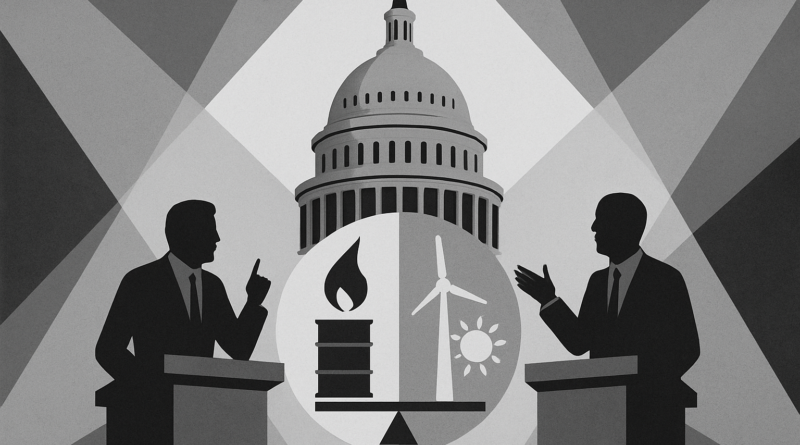Senators Debate Trump’s Energy Emergency Declaration Amid Concerns Over Fossil Fuel Bias and Regulatory Impact
Washington, D.C., April 30, 2025 — In a Senate floor statement delivered during the 119th Congress (2025-2026) 1st Session, Senators Tim Kaine and Martin Heinrich raised concerns about President Donald Trump’s declaration of a national energy emergency on his first day in office. They argued that the emergency declaration, aimed at bypassing environmental regulations, favored fossil fuels like oil, gas, and coal, while restricting the growth of renewable energy sources like wind and solar.
Senator Kaine emphasized that the declaration allowed for the bypassing of property rights, enabling the use of eminent domain for fossil fuel projects. He criticized the move as a way to benefit the fossil fuel industry at the expense of environmental protections.
Senator John Hoeven of North Dakota defended the regulatory policies of the Trump administration, arguing that additional taxes and fees on natural gas would hurt consumers, especially low-income households. He highlighted the U.S. as a leading oil and gas producer, making strides in emissions reduction despite regulatory challenges.
Senator James Lankford of Oklahoma expressed concerns over regulatory restrictions, such as drilling bans in Federal waters, and argued that energy security was compromised by the current administration’s policies. Senator Mike Lee of Utah emphasized that the energy emergency stemmed from regulatory obstacles to domestic production, leading to rising electricity costs.
Finally, Senator Sheldon Whitehouse of Rhode Island condemned Trump’s declaration, claiming it benefited fossil fuel billionaires at the expense of American families, raising utility bills and increasing profits for the oil and gas industry.
The debate over the energy emergency declaration reflects ongoing tensions in U.S. energy policy, with contrasting views on balancing fossil fuel production and the transition to clean energy.
Disclaimer:
This article is based on official statements and proceedings from the U.S. Congressional Record, a public government source. The content reflects remarks made by members of Congress and has been edited solely for clarity and length. EnergyRoundup.com presents these records for informational purposes and does not endorse any political viewpoint.

